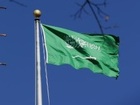President Joseph Aoun revealed Wednesday that he has told Hezbollah that “the rhetoric of war does not solve the problem,” adding that Hezbollah is not operating in the South Litani area.
Explaining why he has called for negotiations with Israel, Aoun said: “If we lack the ability to go to war, war has led us into tragedies, and there is a wave of settlements in the region, what can we do?”
 Full Story
Full Story
Lebanese Forces leader Samir Geagea on Wednesday responded to Hezbollah chief Sheikh Naim Qassem’s speech, stressing that U.N. Security Council Resolution 1701, the 2024 ceasefire agreement and the Lebanese government’s decisions call for disarming Hezbollah across Lebanon and not only south of the Litani River.
 Full Story
Full Story
Kataeb leader MP Sami Gemayel said Wednesday that Hezbollah's weapons are now a threat to the Lebanese people, after Hezbollah leader Sheikh Naim Qassem said that there is no danger on the residents of north Israel, urging it to withdraw from south Lebanon.
"If the arms do not threaten the northern settlements according to Sheikh Naim's latest statement, then they have certainly become a tool to intimidate and pressure the Lebanese, and sway the elections."
 Full Story
Full Story
When engineer Tarek Mazraani started campaigning for the reconstruction of war-battered southern Lebanon, Israeli drones hovered ominously overhead -- their loudspeakers sometimes calling him out by name.
Despite a ceasefire struck last November aiming to put an end to more than a year of fighting with Hezbollah, Israel has kept up near-daily strikes on Lebanon.
 Full Story
Full Story
Parliament Speaker Nabih Berri urged Wednesday the ceasefire monitoring committee and member states (the U.S. and France) to stop Israel's attacks and occupation, and called on the Lebanese to stay united in the face of the Israeli aggression.
Despite a ceasefire reached in November last week, Israel has kept up its near-daily attacks on south and east Lebanon and is occupying five hills it deems "strategic" in the south.
 Full Story
Full Story
Saudi Arabia has advised Lebanon to quickly finalize the monopolization of weapons in the country and go to “direct negotiations” with Israel, Gulf diplomatic sources said.
“The alternative will be costly and in the form of a destructive new Israeli war or a complete shunning of Lebanon by the Arab world and the West,” the sources warned, in remarks to the Nidaa al-Watan newspaper.
 Full Story
Full Story
The Israeli army has accused Hezbollah of seeking to rebuild its combat abilities in south Lebanon.
Military spokesman Nadav Shoshani also accused Hezbollah of operating south of the Litani River in violation of the ceasefire agreement.
 Full Story
Full Story
The Lebanese Army has completed 95 percent of a plan to disarm Hezbollah south of the Litani river, official sources told al-Binaa newspaper.
Since a ceasefire was reached with Israel last year, the United States has increased pressure on Lebanese authorities to disarm Hezbollah.
 Full Story
Full Story
The Israeli army is “prepared for several days of combat in Lebanon” and the issue is “a matter of time,” Israeli reports have quoted a senior Israeli military official as saying.
Concerns have meanwhile surfaced in the Israeli press over Hezbollah’s possible response to any operation in Lebanon.
 Full Story
Full Story
All-out war between Israel and Hezbollah is ruled out in the foreseeable future, unless Israeli Prime Minister Benjamin Netanyahu decides to commit a “foolishness that he might need before the Israeli elections,” political sources said.
“But the current situation is the best for Israel, because it is waging war and achieving several goals without incurring human and material costs, and because any all-out war might push Hezbollah to respond and threaten the security of the (Israeli) north, after Netanyahu’s government said that it waged war on Lebanon to restore security in the settlements,” the sources told al-Binaa newspaper.
 Full Story
Full Story



